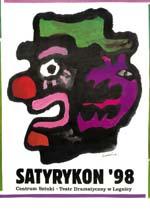
Satyrykon, Satire Drawing Competition in Legnica, 1998
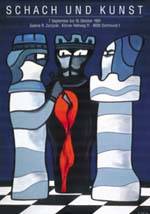
Chess and Art, Exhibition and Competition in Dortmund, 1991
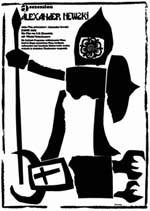
Alexander Nevsky, A Film by Serge Eisenstein, 1966
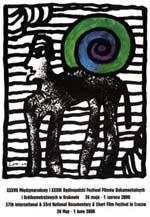
37th International & 33rd National Documentary & Short Film Festival in Cracow, 1999
Jan Lenica was born in 1928 in Poznan, Poland. His father was a famous violinist and also a painter. Jan who was deeply impressed by his father, finished his studying in the field of music but instead of music and painting which were his father's favorites, he began his career as a caricaturist and illustrator for books and magazines. After the suffers of World War II which even cause him to return to Poland by Nazis, he went to Warsaw and in Polytechnic School chose architecture to study but he didn't continue this either and following a friend's suggestion, he designed his first poster for a play. He designed lots of modern posters after that within fourteen years in printing Center of Cinematic Posters of Poland (CWF) and became famous as a poster designer in Poland. Henryk Tomaszewski, the great teacher and master, invited him to work as his assistant in The Warsaw Academy of Fine Arts. This was a great happening in his life.
In 1956, Lenica got the opportunity to design the Polish pavilions in different international exhibitions in Vienna, Izmir, London and Paris. He became interested in animated films the next year. He made his first and second short films in cooperation with Walerian Borowczyk. His second short film named "house" won the Grand Prix at the International Competition of Experimental Films in Brussels, 1958 . In 1959, he made his third film in Paris named "Monsieur TÉte" with Eugene Unesco talking in it. This won the Emile Cohl Prize and soon he designed and directed another film "Janko le Musicien" in Poland. Lenica never forgot about designing books and posters while he was making films and he won the Toulouse-Lautrec Awarde in Paris too. Later he made a film named "Labirynt". In that time, Lenica was a famous artist but he was best-known in the world as a modern poster designer in Poland, though he never left filmmaking. Then he left Poland, heading to Paris, Germany and The United States. He stayed a year in The United States but finally chose Germany to stay. There, he designed scenes and clothes for Wisbaden and Koln Opera Houses. When he went to Paris, he designed a poster for Roman Polanski's film "Cul de Sac" in cooperation with the French graphic designer Alain Le Quernec. Later on, Le Quernec organized an exhibition of his works in order to make him known in France more than before.
In that time, I visited Roman Cieslewisz, another Polish designer, and Jan Lenica every time I traveled to Europe. I wanted to organize individual exhibitions of their works in Tehran. Lenica accepted this immediately and gave me some of his works, most of them are shown in this exhibition. I often saw them having discussions and I was surprised about this fact that these things happen everywhere! Then I visited Cieslewisz more than Lenica who was often on trips or in Germany. He used to teach in the Kassel High School as well as teaching filmmaking elsewhere.
In 1980, Center Georges Pompidou in Paris organized an exhibition of his works as well as a festival of his short and long films. I was very exited to see him but I couldn't. Some years ago when I was in Germany I found out that the German government gave him an important artistic award. Eventually I could talk to him on the phone and congratulate him while I was in Berlin. He asked me about his exhibition in Tehran and I told him: "I'll do it as soon as possible and of course I'll invite you to Tehran". I thought one of Tehran's Biennials was a good opportunity to have his posters shown but unfortunately I couldn't find them and when I heard about his passing I was deeply sorry. I recently moved and I could find his posters to be shown in this exhibition for the first anniversary of his death. I know I owe him forever.
Morteza Momayez, October 2002
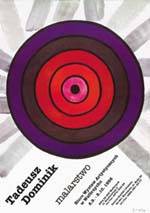
Tadeusz Dominik, One Man Exhibition, 1996
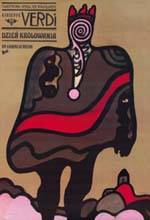
Kings One Day, Opera by Giuseppe Verdi, 1985
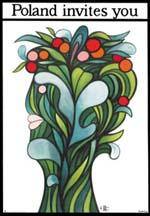
Poland Invites You, Polish Tourist Information Center, 1970
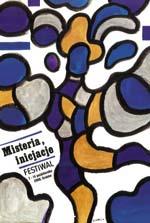
Mystery, A Festival in Cracow, 2000